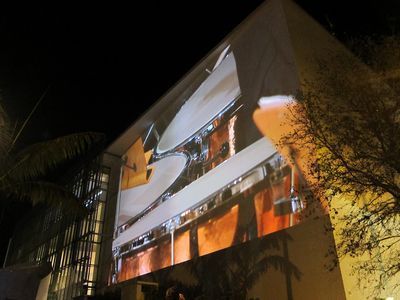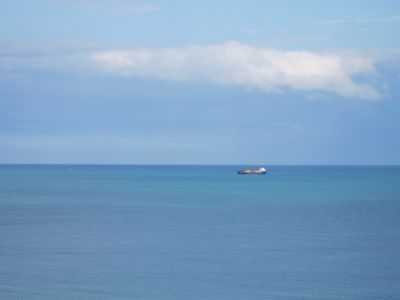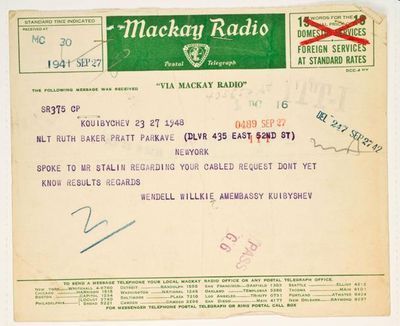Alex Ross's Blog, page 240
February 8, 2011
A Narbutaitė moment
I first heard of Onutė Narbutaitė through a Richard Taruskin article from 2004. On these shores it's difficult to find samples of her work, but what I've heard is striking.
February 7, 2011
Two appearances
Next Sunday afternoon, I'll give my "Chacona, Lamento, Walking Blues" lecture at the National Arts Centre in Ottawa. On Feb. 23, at Hunter College, I'll talk to Wesley Stace about his novel Charles Jessold, Considered as a Murderer.
February 6, 2011
New World Center
Miscellany: Schiff versus Orbán, etc.
Iowa's Bernard Sherman has a helpful summary of recent artistic protests against an apparent rise in neo-nationalism, racism, homophobia, and media censorship in Viktor Orbán's Hungary. András Schiff and Ádám Fischer are in the lead.... Pristine Classical, having lavished much attention on Toscanini, is delving into Furtwängler's wartime recordings. I have never bought the theory that Furtwängler was making clandestine musical protests against the Nazis, but there is undeniably a palpable agony in his account of the first movement of Beethoven's Ninth in March, 1942.... The OREL Foundation, dedicated to music suppressed by the Third Reich, is shedding light on the composer Walter Arlen, who emigrated from Austria to the United States in 1939, at the age of eighteen. The setting of Czesław Miłosz that you can hear at the end of Michael Haas's essay is exceptionally beautiful.... It's good to see Sieglinde blogging again. I agree on two recent points: I loved Sondra Radvanovsky's velvety, long-breathed Tosca, flat notes notwithstanding, and I failed to see the greatness of Willy Decker's Traviata, handsome stage pictures notwithstanding.... I've added more remembrances of Milton Babbitt to the tail end of my memorial post. See especially Rakowski and Iverson. I was interested to see that Babbitt's conservative, anti-Communist streak earned him a mention on the right-wing blog Power Line. Will we see more coverage there of challenging modernist music?
February 5, 2011
A Karl-Birger Blomdahl moment
I'm not sure what possessed YouTube user Gazdatronik to pair the 1928 cartoon Felix the Cat Woos Whoopie with the suite from Karl-Birger Blomdahl's 1959 space opera Aniara, but it's an arresting combination. I revisited my CDs of Aniara after reading Lisa Hirsch's enjoyable Fantasy Opera Season posts. Blomdahl was perhaps the most formidable of twentieth-century Swedish composers, and Aniara, which tells of refugees from a ravaged Earth drifting in space, is a wildly inventive, at times prophetically psychedelic score; the Daisi Doody dance music in Act I is one obvious highpoint. (Blomdahl adopted a similar style in the orgiastic finale of his ballet Sisyphus.) I'd have to think about my own fantasy season — operas you've been waiting to see live — but it would certainly include a double bill of Weill's The Tsar Has His Himself Photographed and Nono's Intolleranza 1960, and also Schreker's Christophorus.
February 4, 2011
NY Phil announcement
Alan Gilbert and the New York Philharmonic have announced their 2011-12 season. The major news, at least in my warped perspective, is that the orchestra will perform Stockhausen's Gruppen at the Park Avenue Armory at the end of June, 2012. In 2008 I saw the Berlin Philharmonic play the piece at a hangar in Tempelhof; this should be a similarly heady experience. The program is ingenious, combining Stockhausen's three-orchestra conception with the multilayered Act I finale of Don Giovanni, Boulez's Rituel in memoriam Maderna, and Ives's Unanswered Question. Otherwise, the season seems a little tamer than previous Gilbert offerings, though still lively. A Carl Nielsen symphony cycle moves ahead. John Corigliano will have a new piece for Stephanie Blythe and orchestra, on a 9/11 theme. Marc Neikrug and Magnus Lindberg also receive premieres. Thomas Adès's formidable new piece Polaris comes to town. Frank Peter Zimmermann is the artist in residence, concentrating on Romantic repertory. David Zinman will lead a Beethoven cycle. A little-known young composer named Philip Glass will receive his first performances with the orchestra. The Contact! series will elicit new works from Alexandre Lunsqui, Yann Robin, and Michael Jarrell. The series has no American music this year, nor is there any music by women in the entire season.
Gruppen has been played only once in New York, in 1965, by students from the New England Conservatory. Bernstein had wanted to perform it at Carnegie Hall, but Stockhausen evidently withheld approval. The details emerge in a letter that Carlos Moseley, then president of the Philharmonic, wrote to the late critic Alan Rich, who had accused Bernstein of trying to sabotage avant-garde music instead of supporting it. The letter comes from the Philharmonic's staggering new digital archive, the first part of which went online yesterday. It is a huge trove of material, and I've had time only to scratch the surface. Among the first things I found was a pile of correspondence relating to Shostakovich. In 1942, the orchestra was so determined to bring the composer to New York that it deputized Wendell Willkie to approach "Mr. Stalin" on the matter. Shostakovich (or Stalin) said no. I also looked through a few of Bernstein's conducting scores, including his voluminously annotated copy of the Mahler Ninth and a of Mahler's First that Mahler himself used (I believe that's his writing on p. 162). And the same file that contains Moseley's letter to Rich has testimonials in support of Bernstein's avant-garde festival of 1963-64 and his controversial lectures from the stage — I especially liked a beautifully overwrought ode to Xenakis from the New York office manager of H. Daroff & Sons, manufacturers of 'Botany' 500 Clothing. Make your own discoveries — it goes on and on.
Philharmonic announcement
Alan Gilbert and the New York Philharmonic have announced their 2011-12 season. The major news, at least from my warped perspective, is that the orchestra will perform Stockhausen's Gruppen at the Park Avenue Armory at the end of June, 2012. In 2008 I saw the Berlin Philharmonic play the piece at a hangar in Tempelhof; this will probably be a similar experience. The program is ingenious, combining Stockhausen's three-orchestra conception with the multilayered Act I finale of Don Giovanni, Boulez's Rituel in memoriam Maderna, and Ives's Unanswered Question. Otherwise, the season seems a little tamer than previous Gilbert offerings, though still lively. A Carl Nielsen symphony cycle moves ahead. John Corigliano will have a new piece for Stephanie Blythe and orchestra, on a 9/11 theme. Marc Neikrug and Magnus Lindberg also receive premieres. Thomas Adès's formidable new piece Polaris comes to town. Frank Peter Zimmermann is the artist in residence, concentrating on Romantic repertory. David Zinman will lead a Beethoven cycle. A little-known young composer named Philip Glass will receive his first performances with the orchestra. The Contact! series will elicit new works from Alexandre Lunsqui, Yann Robin, and Michael Jarrell. The series has no American music this year, nor is there any music by women in the entire season.
Gruppen has been played only once in New York, in 1965, by students from the New England Conservatory. Bernstein had wanted to perform it at Carnegie Hall, but Stockhausen evidently withdrew his approval for the plan. Some of the details emerge in a letter that Carlos Moseley, then president of the Philharmonic, wrote to the late critic Alan Rich, who had accused Bernstein of trying to sabotage avant-garde music instead of supporting it. The letter comes from the Philharmonic's staggering new digital archive, the first part of which went online yesterday. It is a huge trove of material, and I've had time only to scratch the surface. Among the first things I found was a pile of correspondence relating to Shostakovich. In 1942, the orchestra was so determined to bring the composer to New York that it deputized Wendell Willkie to approach "Mr. Stalin" on the matter. Shostakovich eventually said no. I also looked through a few of Bernstein's conducting scores, including his voluminously annotated copy of the Mahler Ninth and a of Mahler's First that Mahler himself used (I believe that's his writing on p. 162). And the same file that contains Moseley's letter to Rich has testimonials in support of Bernstein's avant-garde festival of 1963-64 and his controversial lectures from the stage — I especially liked a magnificently overwritten note from the office manager of H. Daroff & Sons, manufacturers of 'Botany' 500 Clothing. Make your own discoveries — it goes on and on.
February 3, 2011
She speaks according to the book
Courtesy of the Metropolitan Opera, a brief video of Kathleen Kim's searing portrayal of Jiang Qing in Nixon in China.
February 1, 2011
For Margaret Price
The nobly expressive Welsh soprano died on Saturday, at the age of sixty-nine. Here she is in conversation with Edward Seckerson at Wigmore Hall.
Alex Ross's Blog
- Alex Ross's profile
- 425 followers






